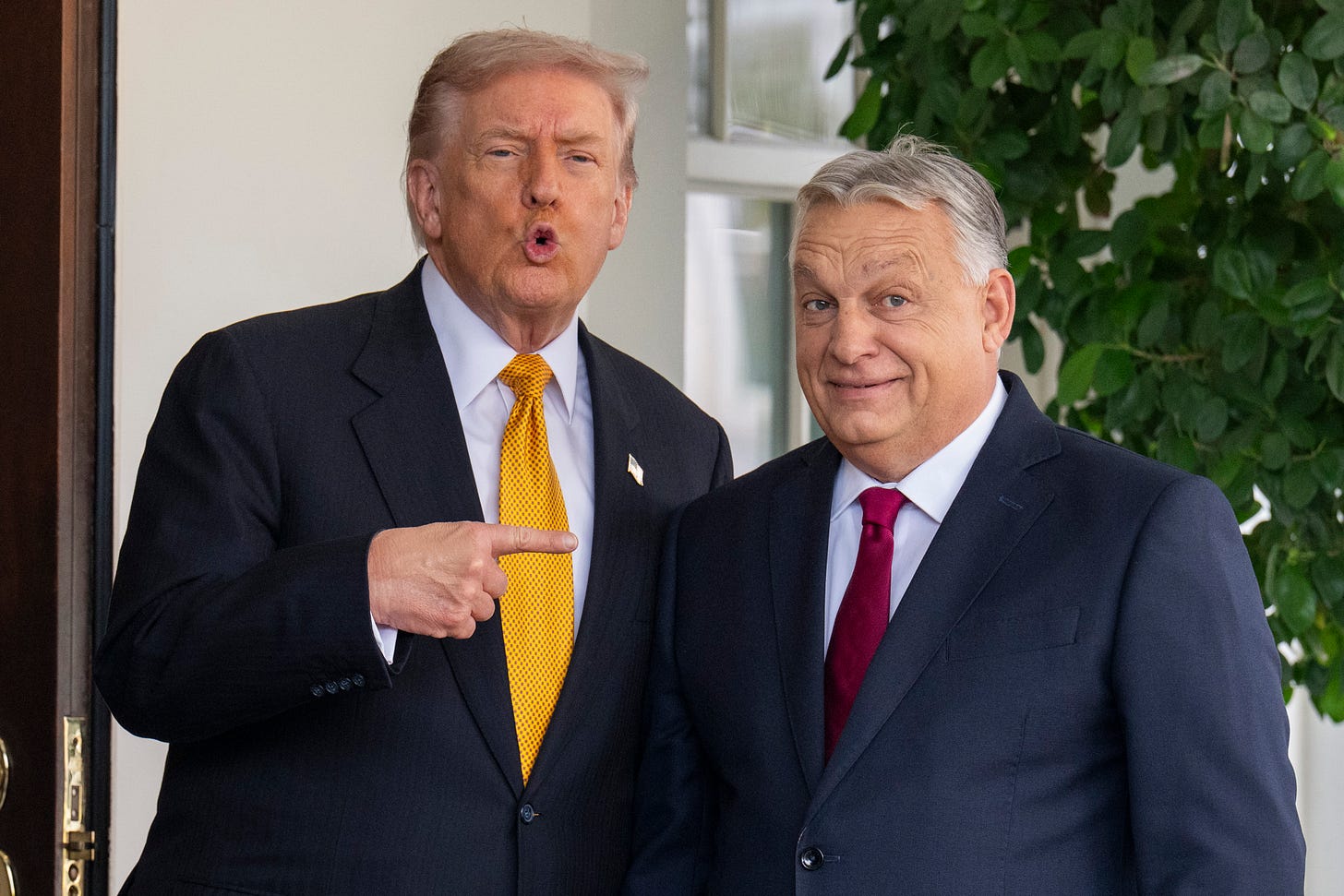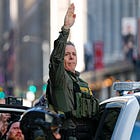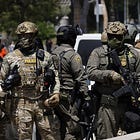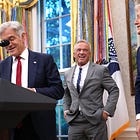Don Moynihan on "Purge, Merge, and Surge"
"Instead of surging in Iraq, it’s happening here in American cities."
This special Saturday edition of Public Notice is made possible by paid subscribers. If you aren’t one, please consider signing up.
PN is entirely supported by readers like you.
Old friend of the newsletter Don Moynihan recently wrote a piece that develops a helpful framework for understanding the Trump administration’s plan to subjugate American cities.
In “Purge, Merge, and Surge,” Moynihan details how the administration is creating a federal “omniforce” accountable only to Trump that he can use to “impose control over Democratic cities, instigate enough unrest to justify escalation, and find examples to brutalize and tamp down any dissent.”
As a weekend bonus for subscribers, we recently connected with Moynihan, a professor of public policy at the University of Michigan, to go deeper into Trump’s scheme and how it might play out.
“The visible presence of overwhelming numbers of troops in the streets has a psychological component,” he told us. “You display dominance, exert control, and make examples of people who resist you — except instead of surging in Iraq, it’s happening here in American cities.”
Moynihan also noted how unusual it is that so many top Trump officials are living on military bases.
“More and more cabinet members who are directing the anti-immigration policies — Marco Rubio, Stephen Miller, Kristi Noem — live on military bases now, not in American civilian society, and it feels like another historical parallel to Iraq, where the American administration was living behind gated walls protected by the military in the Green Zone,” he said. “There’s something deeply unhealthy about a society where political leaders are literally shut off from the communities that they govern.”
Moynihan and Public Notice contributor Thor Benson talked about the significance of Trump’s bizarre gathering of generals in Virginia, the purge of the civil service, and more. A full transcript of their conversation, lightly edited for clarity, follows.
Thor Benson
What inspired your piece about Trump’s “omniforce”?
Don Moynihan
I’ve been thinking about it for a while and seeing reporting on different aspects of the story, but no one had really put it all together.
I wrote something a while ago about the checklist for authoritarians, and a big one is trying to ensure control of the military and internal security. The way this is happening with Trump is around immigration enforcement, with ICE and CBP serving as his model agencies. The administration is trying to make other agencies reflect them and be subservient to them.
So when you see stories about, for example, FBI agents being reassigned to work on immigration, that’s partly a story about the FBI, but it’s also a story about how more and more of the people who carry guns and work for federal government are being sucked into this omniforce that’s being deployed primarily to Democratic cities in a display of control and dominance.
Thor Benson
You discuss Trump’s recent unusual gathering of military generals in your piece. What do you think the purpose of that was?
Don Moynihan
There are a couple of things happening with the military at the same time. Senior leaders are being pushed out. Trump and Hegseth brought together generals in an unprecedented fashion, and their underlying message was, “You need to be ready to fight the enemy within, and we are going to take the gloves off.” It felt like a moment where they were saying, “Get on board or get out.”
At the same time, the administration is making appeals to the rank and file, including finding ways to make sure troops are paid during the shutdown even when they don’t actually have funds appropriated for it.
One of the things Trump realized by the end of his first term is that he did not have generals with him when it came to backing his claims of a stolen election or firing on Americans in domestic policing situations. I think he probably feels like he might have been able to hold onto power if he had a more subservient military than the one he had in 2020.
Thor Benson
There was a recent Wired article about the Texas deportation force that’s forming, and in response immigration lawyer Aaron Reichlin-Melnick commented that it feels like Trump is forming a network of paramilitary forces within the US. Is that your read too?
Don Moynihan







